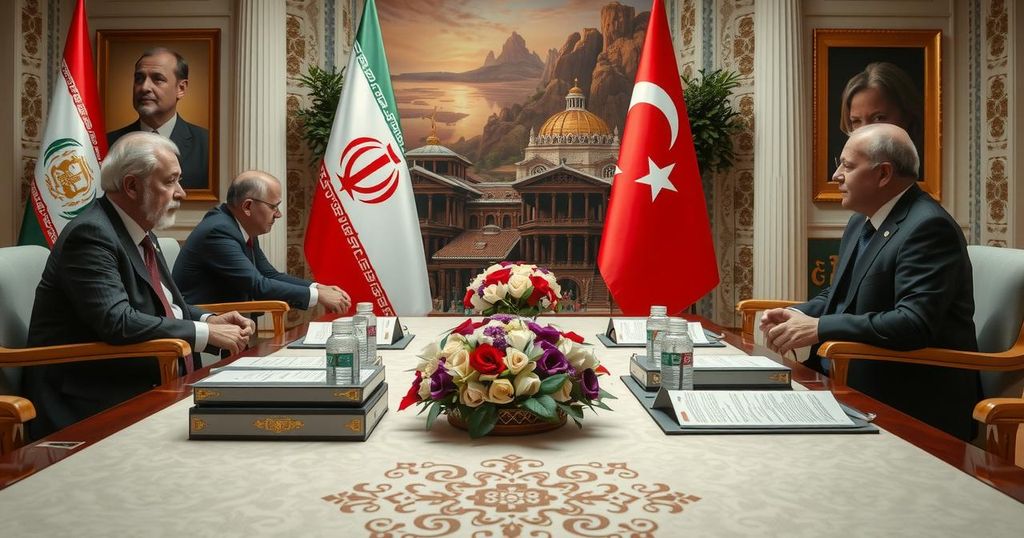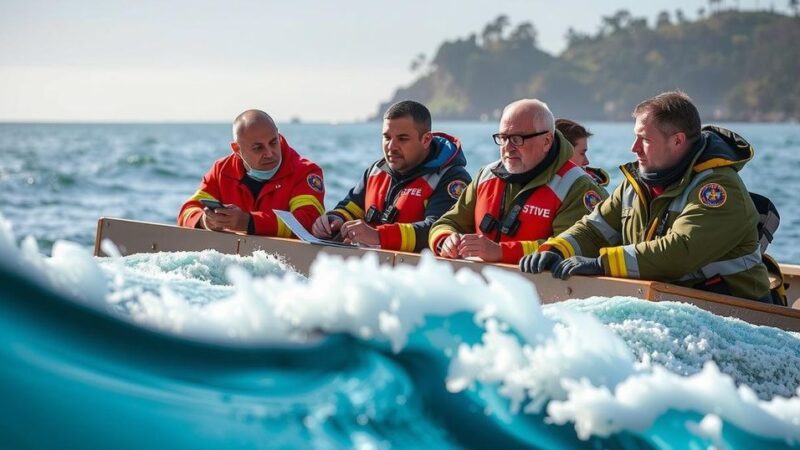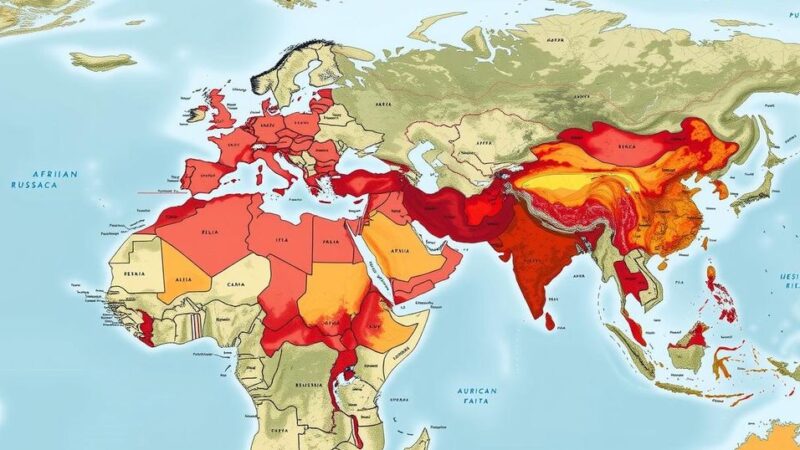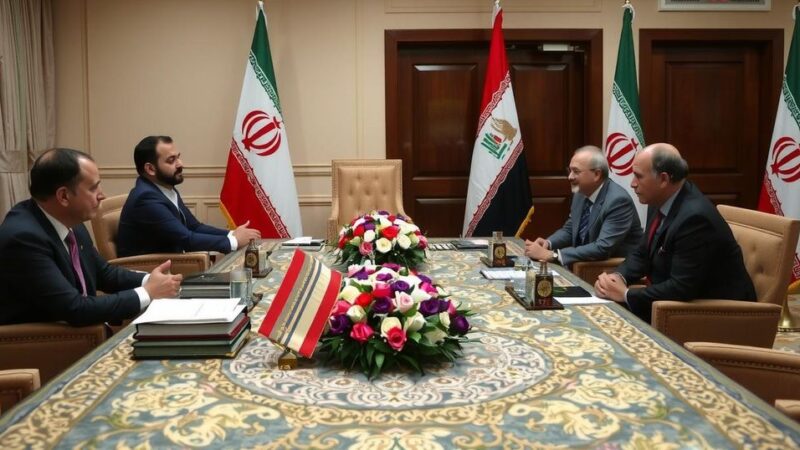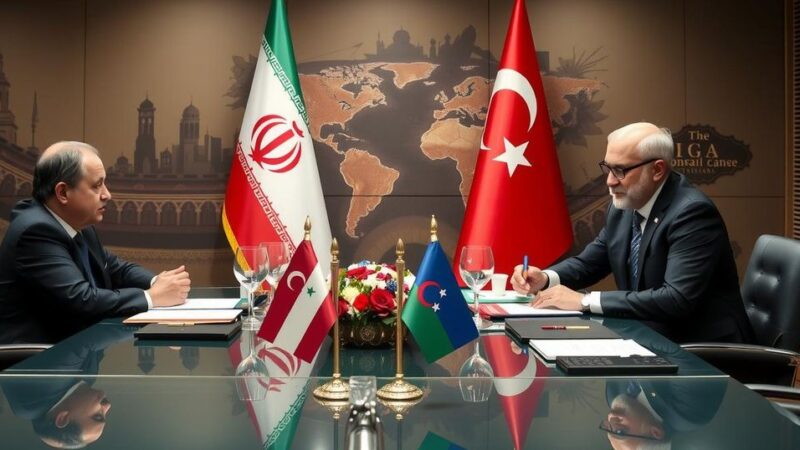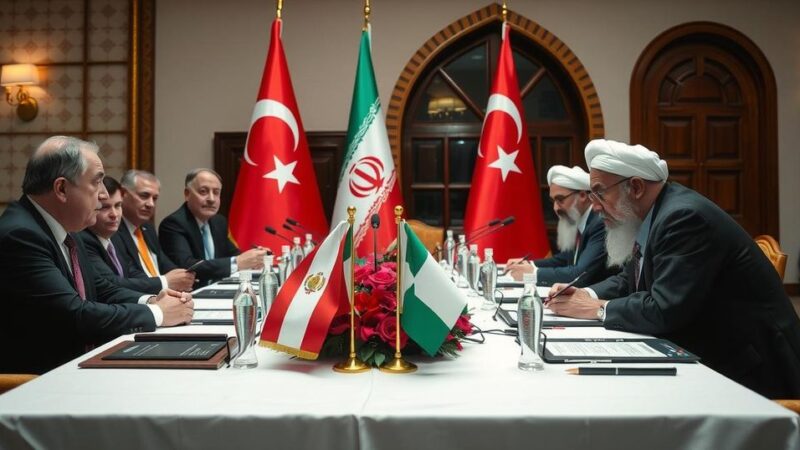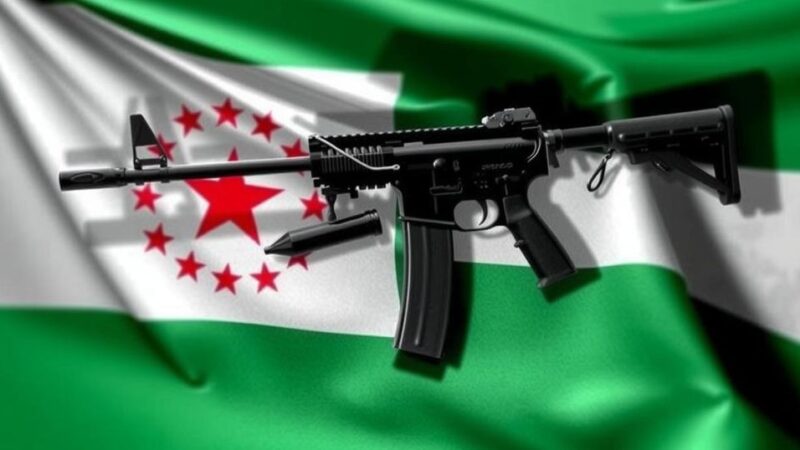Egypt hosted the Developing-8 summit, bringing together the presidents of Turkey and Iran amid Middle Eastern turmoil, highlighting the evolving influence of non-Arab nations. The summit addressed significant regional issues, including the power dynamics following recent conflicts involving Iran-backed groups and the civil war in Syria, and the cost of Houthi missile strikes on Egypt’s economy. Egypt aims to restore stability and economic integrity through diplomatic efforts with Iran and Turkey, navigating complex historical relations while establishing economic partnerships.
On Thursday, Egypt hosted a summit of eight Muslim-majority nations, known as the Developing-8, which brought together the presidents of Turkey and Iran amidst ongoing turmoil in the Middle East. The meeting occurred in Egypt’s New Administrative Capital, highlighting the shifting dynamics of regional power, as non-Arab nations like Turkey and Iran increasingly influence Middle Eastern affairs. Recent military conflicts have significantly weakened Iranian-backed groups, such as Hamas and Hezbollah, following confrontations with Israel, while Turkey has been implicated in the opposition that has challenged the Syrian government led by Bashar Al Assad.
During the summit, Turkish President Recep Tayyip Erdogan and Iranian President Masoud Pezeshkian will meet for the first time since Assad’s regime was ousted, marking a historic interaction for Iranian leadership within Egypt. This visit is particularly significant given that Pezeshkian’s predecessor, Mahmoud Ahmadinejad, was the last Iranian leader to visit Egypt in 2013. Egyptian President Abdel Fattah El Sisi is anticipated to discuss the impact of attacks on Red Sea shipping by Iranian-aligned Houthi forces during his discussions with Pezeshkian.
The ongoing assaults have drastically reduced Egypt’s revenue from the Suez Canal, a critical economic artery, by half, prompting Cairo to press Iran to rein in the Houthis and ensure the safety of strategic waterways. The summit agenda also includes addressing the conflicts in Gaza and Lebanon, with an emphasis on fostering collaboration among D-8 members, which include Nigeria, Pakistan, Bangladesh, Indonesia, and Malaysia.
Despite historical tensions, Egypt and Turkey have sought to normalize relations, especially after years of mutual accusations regarding support for militant groups. Nevertheless, they continue to back opposing factions in Libya’s civil war and remain entangled in Sudan’s ongoing conflict.
The Developing-8 organization was established in 1997 to promote economic cooperation and development among its member states, which comprise predominantly Muslim-majority nations. The current geopolitical climate in the Middle East is characterized by increased involvement from non-Arab nations, particularly Turkey and Iran, which have become pivotal players in regional conflicts. The tensions that underscore the summit reflect longstanding rivalries and alliances that have evolved since the Arab Spring, as countries reassess their positions amid the shifting balance of power. Recent military engagements involving various state and non-state actors have further complicated the landscape, making forums like the D-8 crucial for dialogue and potential collaboration. The historical context of Egypt and Iran’s strained relations since the 1979 Islamic Revolution adds complexity to their interactions, which are now marked by efforts to revive diplomatic channels and engage in critical discussions concerning regional stability and security.
The summit in Egypt signifies a notable attempt to address critical issues in the Middle East, particularly the role of non-Arab nations in regional politics. With ongoing conflicts in Gaza, Lebanon, and Syria, the dialogue between Turkey and Iran is essential for navigating the repercussions of their actions on Middle Eastern stability. While economic cooperation remains a focus, political undercurrents continue to challenge the prospects of long-term collaboration. The outcomes of these diplomatic exchanges will likely impact the evolving relations among D-8 member states and shape the future dynamics of Middle Eastern geopolitics.
Original Source: www.thenationalnews.com
